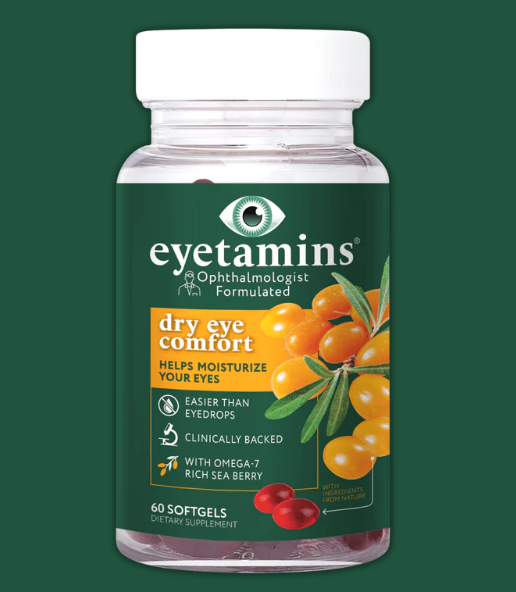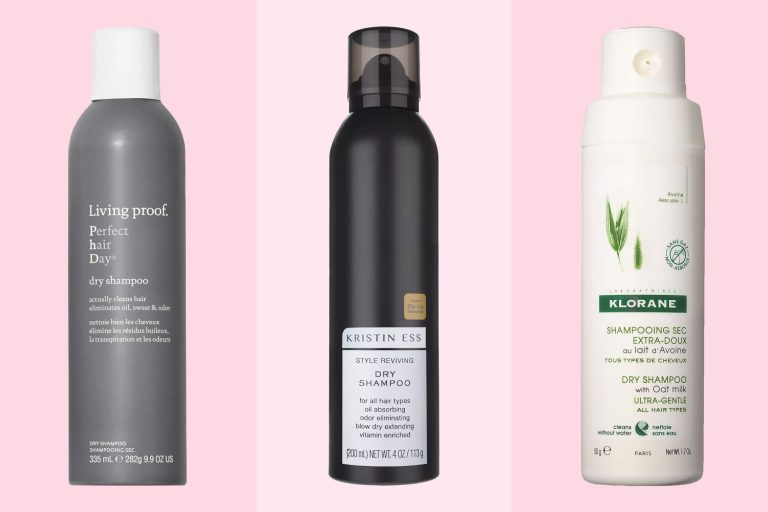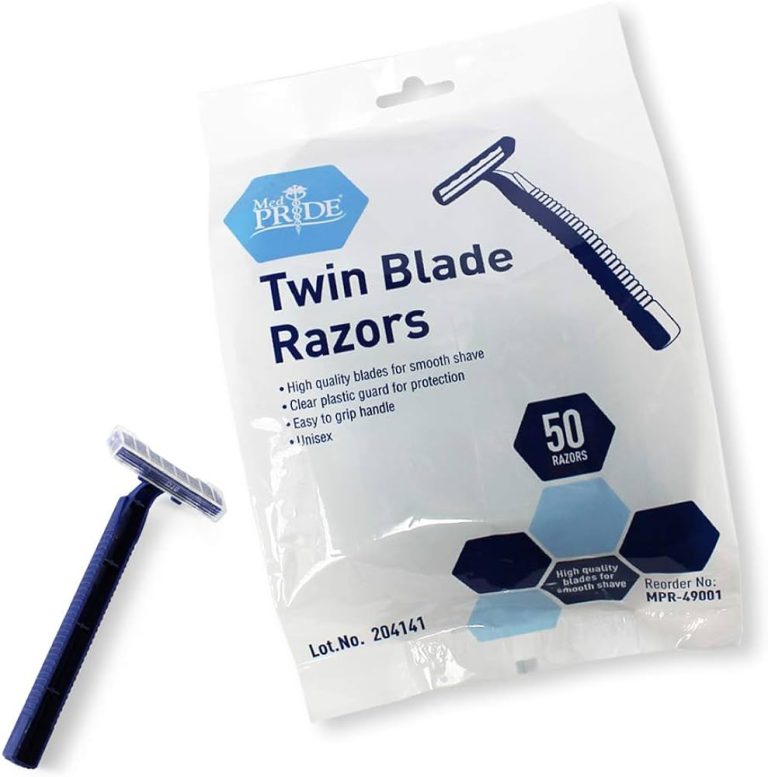9 Best Eye Vitamins for Blurry Vision and Clearer Eyes
Blurry vision can be more than just an inconvenience; it might signal that your eyes need some extra care. While glasses and contact lenses can help, addressing the root cause with the right nutrients can make a significant difference. Eye vitamins play a crucial role in maintaining optimal vision and can even help reduce or prevent blurriness.
In this article, you’ll discover the 9 best eye vitamins specifically for combating blurry vision. From essential vitamins to powerful antioxidants, these nutrients can enhance your eye health and clarity. Let’s dive into how you can support your vision naturally and effectively.
Vitamin A: The Vision Enhancer
Vitamin A is a crucial nutrient for maintaining good eyesight. It plays an essential role in reducing blurry vision and promoting overall eye health.
Benefits for Blurry Vision
Alleviates Dryness: Vitamin A helps produce the pigments in your eye’s retina, which are crucial for vision. If your eyes are dry, vitamin A can help produce enough moisture to keep them lubricated.
Prevents Night Blindness: This vitamin is renowned for its capacity to prevent night blindness and improve low-light vision. By ensuring your eyes can adjust to different lighting conditions, it significantly reduces the occurrence of blurry vision.
Reduces Infections: Vitamin A strengthens the immune system, helping your eyes fight off infections that can cause blurred vision. It maintains the health of corneas and conjunctival membranes, reducing the risk of complications.
Recommended Sources and Dosage
Consume Foods: You can get Vitamin A from various foods, including carrots, sweet potatoes, spinach, and liver. Include these in your diet for a steady supply of this vital nutrient.
Take Supplements: If you’re unable to get enough Vitamin A from food, consider supplements. According to the National Institutes of Health, the recommended daily allowance (RDA) is 900 micrograms for men and 700 micrograms for women.
Consult a Doctor: It’s always best to consult with a healthcare provider before starting any supplement regimen to ensure you’re getting the right dosage for your specific needs.
Vitamin C: Antioxidant Power
How Vitamin C Helps Your Eyes
Vitamin C protects your eyes from oxidative stress. It combats free radicals, reducing your risk of cataracts and age-related macular degeneration (AMD). Studies show a diet rich in Vitamin C can improve overall eye health, making your vision clearer and reducing eye-related ailments.
Foods and Supplements to Consider
Incorporate citrus fruits like oranges and grapefruits into your diet. Bell peppers, strawberries, and leafy greens like spinach are excellent sources too. For supplements, consider Vitamin C tablets or chewables, ensuring you meet the recommended daily intake suggested by your healthcare provider.
Vitamin E: Protection Against Damage
Vitamin E is a vital nutrient that offers robust protection against oxidative damage, essential for maintaining clear vision.
Role in Eye Health and Vision Clarity
Enhances Eye Cell Health: Vitamin E helps protect eye cells from free radicals, which can damage cell membranes and contribute to vision issues.
Reduces Risk of Cataracts: Studies have shown that a higher intake of Vitamin E can lower the chances of developing cataracts, a common cause of blurry vision.
Combats Age-Related Macular Degeneration: By neutralizing oxidative stress, Vitamin E can help slow down the progression of age-related macular degeneration, preserving your vision.
Top Vitamin E Sources for Daily Diet
Nuts and Seeds: Almonds, sunflower seeds, and hazelnuts are packed with Vitamin E. Snacking on these can help you reach your daily requirement.
Leafy Greens: Spinach and Swiss chard are excellent sources. Incorporate these into salads or smoothies for an easy boost.
Vegetable Oils: Sunflower oil, safflower oil, and wheat germ oil are potent sources of Vitamin E. Use them in cooking or dressings for a healthy addition.
Fish: Salmon, trout, and other oily fish not only offer Vitamin E but also provide essential omega-3 fatty acids, benefiting overall eye health.
B Vitamins: Overall Support for Eye Health
B Vitamins play a crucial role in maintaining overall eye health. These vitamins support various functions that are essential for clear vision and preventing eye-related conditions.
Impact on Eyes and Vision
B Vitamins impact your vision by aiding the function of neurons in the retina, which is vital for processing visual information. They help reduce the risk of macular degeneration, glaucoma, and other vision-related issues. These vitamins improve blood circulation in your eyes, ensuring they receive adequate oxygen and nutrients. According to the American Academy of Ophthalmology, deficiencies in B Vitamins like B12 and B9 can lead to blurry vision and other serious eye conditions.
- Vitamin B1 (Thiamine): Thiamine helps prevent cataracts and neurodegenerative damage to the optic nerve. Foods rich in Vitamin B1 include whole grains, pork, and legumes.
- Vitamin B2 (Riboflavin): Riboflavin protects glutathione, an essential antioxidant in the eye. It’s found in dairy products, eggs, lean meats, and green vegetables.
- Vitamin B3 (Niacin): Niacin improves blood flow to the eyes, reducing inflammation and oxidative stress. Sources include poultry, fish, beef, and peanuts.
- Vitamin B6 (Pyridoxine): Pyridoxine reduces the risk of age-related macular degeneration by lowering homocysteine levels in the blood. It’s present in bananas, chickpeas, and fortified cereals.
- Vitamin B9 (Folate): Folate supports DNA synthesis and repair, crucial for maintaining eye health. Leafy greens, beans, and citrus fruits are excellent sources.
- Vitamin B12 (Cobalamin): Cobalamin prevents optic neuropathy and blurry vision by maintaining the health of your optic nerves. Rich sources include fish, meat, dairy products, and fortified cereals.
Incorporating these B Vitamins into your diet can enhance your visual health and reduce the likelihood of blurry vision.
Zinc: Essential Mineral for Vision
Zinc plays a crucial role in maintaining healthy vision and overall eye function. It’s a powerful mineral that combines with various enzymes to support optimal ocular health.
Its Function in Eye Health
Zinc aids in the transportation of Vitamin A from the liver to the retina to produce melanin, a protective pigment in the eyes. It supports the optimal function of enzymes crucial to eye health and helps prevent conditions like night blindness and macular degeneration. By maintaining cell function and communication, Zinc ensures your retina and optic nerve stay healthy and perform effectively.
Foods Rich in Zinc
Include zinc-rich foods in your diet to support your eye health. Oysters are the highest source, providing more zinc than any other food. Other rich sources include beef, crab, lobster, and pork. Vegetarians can get zinc from beans, nuts, whole grains, and dairy products. Incorporating these foods helps maintain your zinc levels and contributes to clearer vision.
Omega-3 Fatty Acids: Support for Retinal Health
Omega-3 fatty acids play a crucial role in maintaining optimal eye health. These essential fats can support vision and promote proper eye structure.
Benefits to Vision and Eye Structure
Omega-3 fatty acids benefit your eyes, particularly the retina. They can help prevent age-related macular degeneration (AMD), which is a leading cause of vision impairment. Studies have shown that DHA, a type of omega-3 found in high concentrations in the retina, is essential for visual development and function. Additionally, omega-3s can reduce inflammation and alleviate dry eye syndrome, enhancing overall eye comfort.
How to Incorporate Omega-3s Into Your Diet
You can incorporate omega-3s into your diet by consuming fatty fish, such as salmon, mackerel, and sardines. Plant-based sources like flaxseeds, chia seeds, and walnuts also provide a good amount. If your diet is lacking in these foods, consider taking fish oil supplements or algal oil if you prefer a plant-based option. Regularly including these sources in your meals ensures you get enough omega-3 fatty acids for optimal retinal health.
Lutein and Zeaxanthin: The Shielding Duo
Lutein and Zeaxanthin are powerful antioxidants essential for maintaining eye health. These nutrients play a crucial role in protecting your eyes from harmful light and oxidative stress.
Importance in Preventing Blurry Vision
Lutein and Zeaxanthin help prevent blurry vision by filtering out blue light and reducing oxidative damage to the eye. They concentrate in the lens and retina, particularly in the macula, enhancing visual sharpness and clarity. Including these nutrients in your diet can lower the risk of age-related macular degeneration (AMD), cataracts, and other eye issues that contribute to blurry vision.
Best Natural Sources
Lutein and Zeaxanthin are abundant in various colorful fruits and vegetables. You can find them in high amounts in leafy greens like spinach and kale. Foods such as broccoli, peas, and brussels sprouts also contain significant levels. Additionally, egg yolks, corn, and orange peppers are excellent sources. Regularly incorporating these foods into your diet can help maintain optimal levels of these essential eye-protecting nutrients.
DHA: Critical for Retinal Integrity
DHA (Docosahexaenoic acid) is essential for maintaining the integrity of your retina. This omega-3 fatty acid plays a critical role in ensuring clear vision.
Role in Vision Clarity
DHA enhances the health of your retinal cells, which are vital for processing visual information. It supports the structural integrity of photoreceptors, reducing oxidative stress, and inflammation, which can cause blurry vision. Studies have shown that adequate DHA levels help to protect against age-related macular degeneration (AMD) and improve overall eye health.
Natural Sources of DHA
You can find DHA in various natural sources, which can be easily incorporated into your diet. Fatty fish like salmon, mackerel, and sardines are rich in DHA. Algal oil supplements are an excellent plant-based alternative, providing a substantial amount of DHA. Other sources include fortified foods, such as certain brands of eggs, milk, and yogurt, ensuring that you can boost your DHA intake conveniently and effectively.
Conclusion
Taking care of your eyes is essential for maintaining clear vision and overall eye health. Incorporating the right vitamins and nutrients into your diet can make a significant difference. Focus on including foods rich in DHA, such as fatty fish and fortified products, to support your retinal health and reduce the risk of age-related macular degeneration. By prioritizing these nutrients, you can help ensure your eyes stay healthy and your vision remains sharp.
Frequently Asked Questions
What nutrients are essential for eye health?
Several key nutrients are important for maintaining eye health, including vitamins A, C, E, B, Zinc, Omega-3 fatty acids, Lutein, Zeaxanthin, and DHA.
What is DHA and why is it important for vision?
DHA is an omega-3 fatty acid crucial for retinal integrity. It supports retinal cell health, reduces oxidative stress, and lowers inflammation, which are essential for clear vision and protecting against age-related macular degeneration (AMD).
How does DHA benefit retinal health?
DHA maintains the structural integrity of the retina, supports retinal cell membranes, and helps reduce oxidative stress and inflammation, which can contribute to improved vision and protective measures against AMD.
What are some natural food sources of DHA?
Natural food sources of DHA include fatty fish such as salmon, mackerel, and sardines. Additionally, algal oil supplements and fortified foods like eggs, milk, and yogurt are good sources.
Can DHA be obtained from non-fish sources?
Yes, DHA can be obtained from non-fish sources like algal oil supplements and fortified foods including eggs, milk, and yogurt.
Is there a link between DHA intake and age-related macular degeneration?
Yes, adequate levels of DHA have been linked to protection against age-related macular degeneration (AMD) due to its role in supporting retinal health and reducing inflammation and oxidative stress.
How can I increase my DHA intake for better eye health?
You can increase DHA intake by consuming more fatty fish such as salmon, mackerel, and sardines, or by using algal oil supplements and eating fortified foods like eggs, milk, and yogurt.
Why is reducing oxidative stress important for eye health?
Reducing oxidative stress is crucial for eye health as it prevents damage to retinal cells, supports overall retinal function, and reduces the risk of age-related eye diseases like AMD.
Are there supplements available for improving eye health?
Yes, there are supplements available specifically formulated to improve eye health, often containing DHA, vitamins, and other essential nutrients like Lutein and Zeaxanthin.






